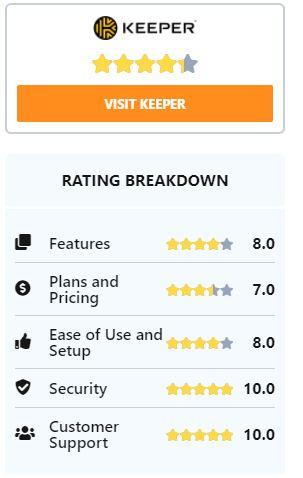Few Reasons To Use Password Manager for Your Better Security

Security guide using a password manager
As we love the internet and the amazing range of diverse, fun, informative, and time-consuming services, we find it difficult to keep track of all the passwords that accompany all the mandatory site and app registrations. Everything gets small. Simply using the same password for all different accounts is not a reasonable option for obvious reasons. Fortunately, there are several password managers, who promise serious encryption so that the secret keys to your life will be locked nicely and securely until you need them.
Password Manager offers the type of form filling and one-click password entry you want, along with the option to generate strong random passwords on the fly or to automatically fill out forms with matching passes.
It provides a desktop dashboard to make it easier to view all the details you’ve saved and to give a little health status, recommending that you change some passwords if they see that they have been reused in different locations, for example. The user interface is very easy to use.Photo by Philipp Katzenberger on Unsplash
What does the average Internet user have to do?
Well, you should change your passwords – regularly! Passwords are a fairly convenient way to verify authenticity and can be outwitted by fraudsters quite easily, from pure brute force to simple misrepresentation.
What you need is another way to confirm yourself. That’s why many online services, many of which have felt the lack of hacking, offer two-factor authentication.
There are three generally recognized factors for authentication: something you know (such as a password), something you have (such as a hardware token or a cell phone), and something you are (such as a fingerprint). Two-factor means that the system uses two of these options. The codes provided by the authentication applications are synchronized through your accounts, so you can scan the QR code on your phone and get your six-digit passcode on the browser if supported.
Remember this as you panic at how difficult this sounds: being safe is not easy. The bad guys are counting on you to be loose in protecting yourself. Implementing 2FA means it will take a little longer to log in each time on a new device, but in the long run, it’s worth it to avoid serious theft, whether it’s your identity, data, or money.

The following is not an exhaustive list of services with 2FA capabilities, but we cover the main services that everyone tends to use and let you go through the setup. Activate 2FA on all these and you will be safer than ever.Photo by Markus Spiske on Unsplash
What exactly is a password manager
Password Manager is a software application that acts like a digital safe and helps protect all your passwords on all the websites that require it. Allows you to create a password for each site other than the following to enable a strong and secure account setup. Keeps all your passwords in one vault, secured by one master password. There are several different password managers, some of which are better than others that have many useful features such as instant password estimation, two-step authentication, add-ons, auto-completion.
Having a password management app can make your life easier while storing data. You will no longer have to enter your password multiple times when you want to enter a secure location as previously mentioned, most come with an auto-charge feature. Even if you have it on your phone, you can save time by simply copying and pasting it from the password management application to the service you are trying to sign in to. This makes it much easier to use a different password for each of your accounts, as you already should.
Most of us have dozens of online accounts and each of them should hopefully contain a unique password. Reusing the same password, especially a simplified or weak one, is a direct threat to the security of your confidential data stored online. A hacker can gain control of something smaller with which they can enter your bank account leaving you spoiled and angry. While most individuals find it difficult to remember a few different passwords, trying to remember dozens of unique ones can cause our brains a little unnecessary confusion. For this sole reason, it is probably in your best interest to get acquainted with the password manager.

There will still be one password that you will need to remember, which will be unlocked by the password manager itself. Since this password opens the vault for all your other passwords, it will have to be your most formal. Never forget to use a long, incomprehensible string of capital letters, symbols, and numbers. A better and potentially easier way to ensure a secure master password is to come up with a password. A passive phrase consists of a few random but spoken words separated by spaces. Once the master password has been created, write it down somewhere and keep it hidden and safe from prying eyes until you can remember it. Somewhere like your wallet or purse should be enough. Keep it only until you can store it completely, which also means that it should be a password that you will use every day.
Password manager as a security option
Not so long ago we thought that passwords would be secure, they must be funny, random strings made up of random characters, capital letters, numbers, and symbols. Fortunately, this path of thought is no longer the case. With Password Manager, you know you even have to remember passwords (technically) because most come with auto-complete that remembers all your passwords.
Password managers can store a wealth of data in addition to your login information. It is often a good idea to use this for your credit card numbers and various other confidential information to include PDFs and photos. It is often a great place to store tax forms and identify photos for online use.






